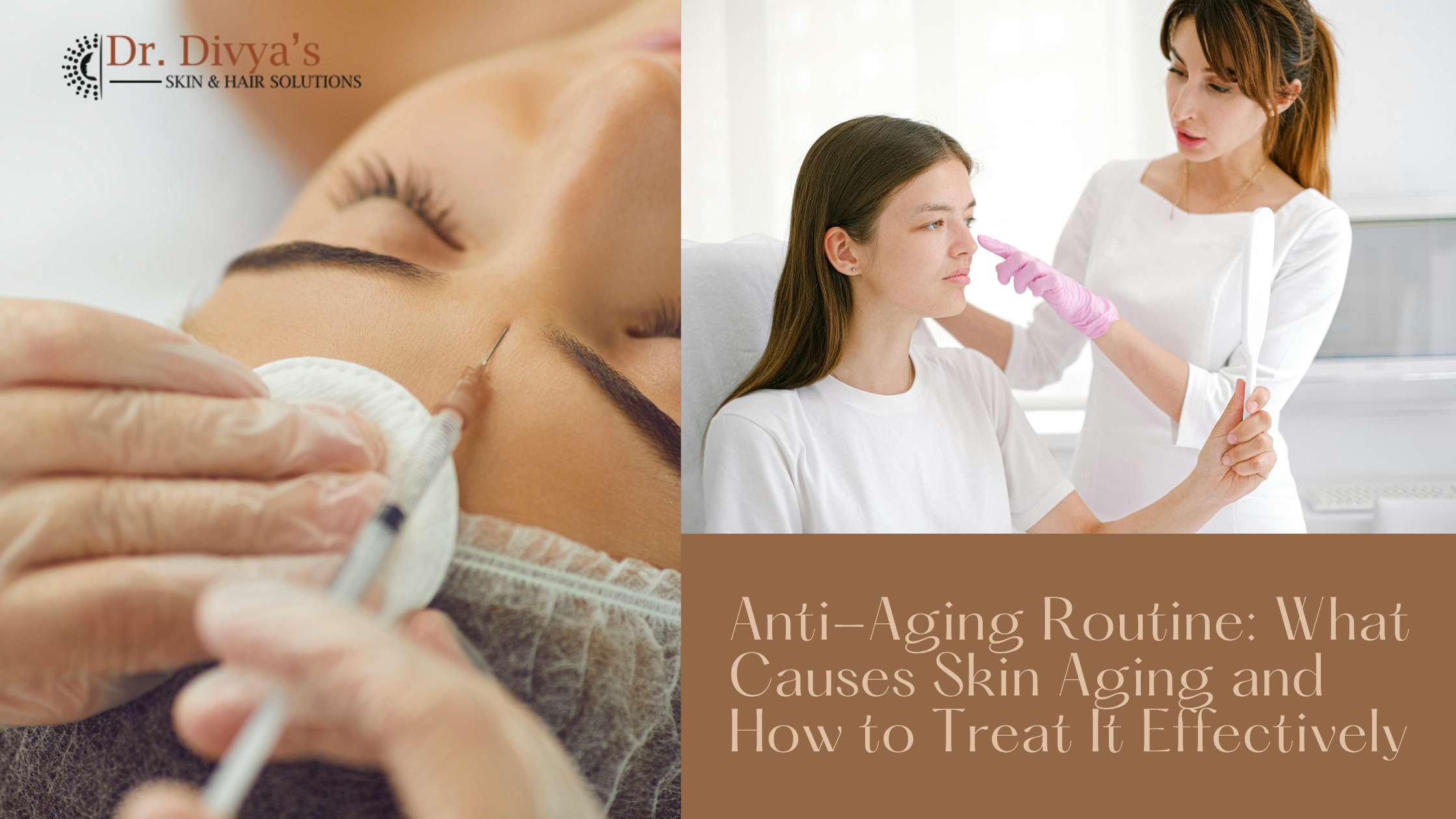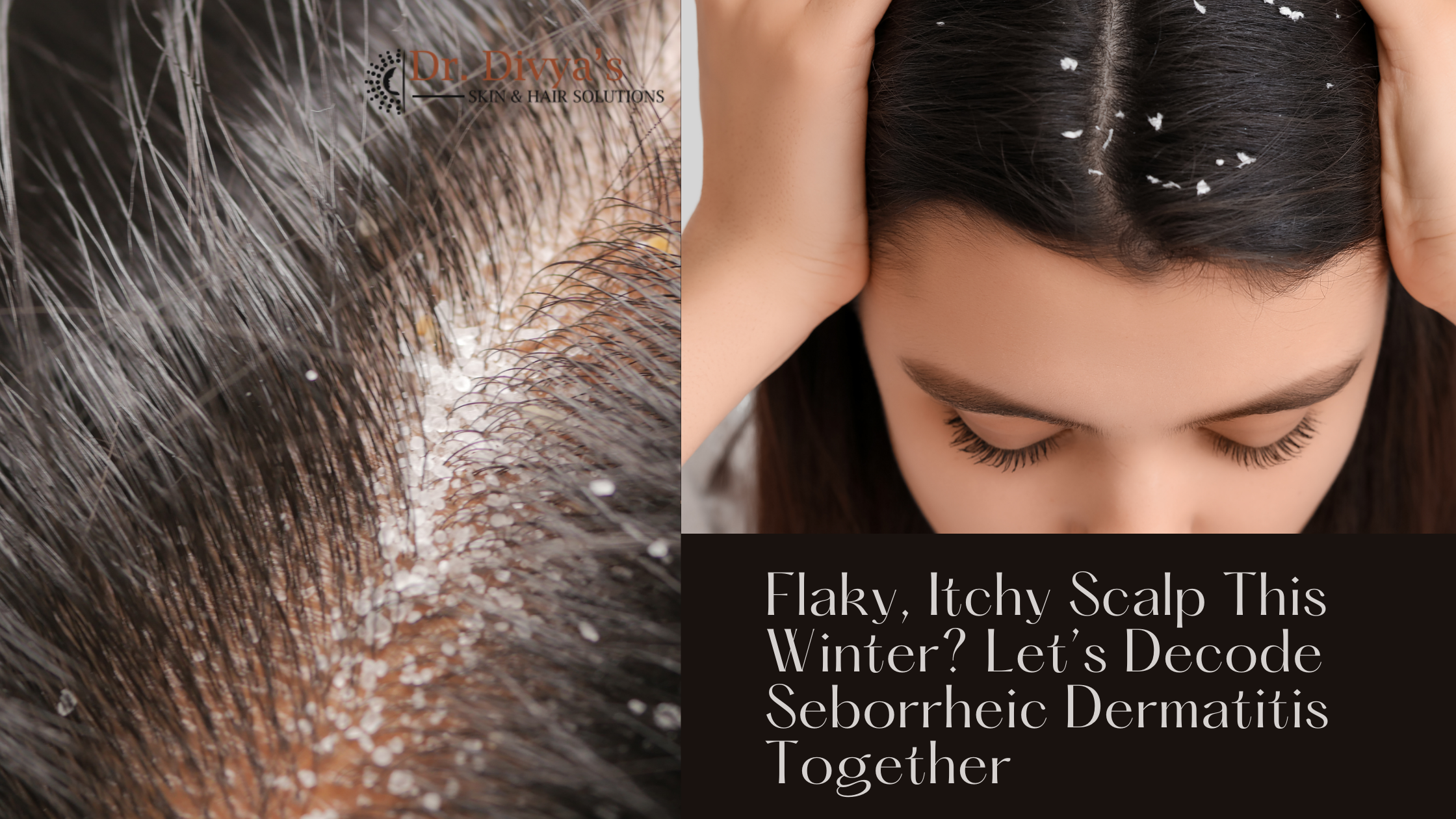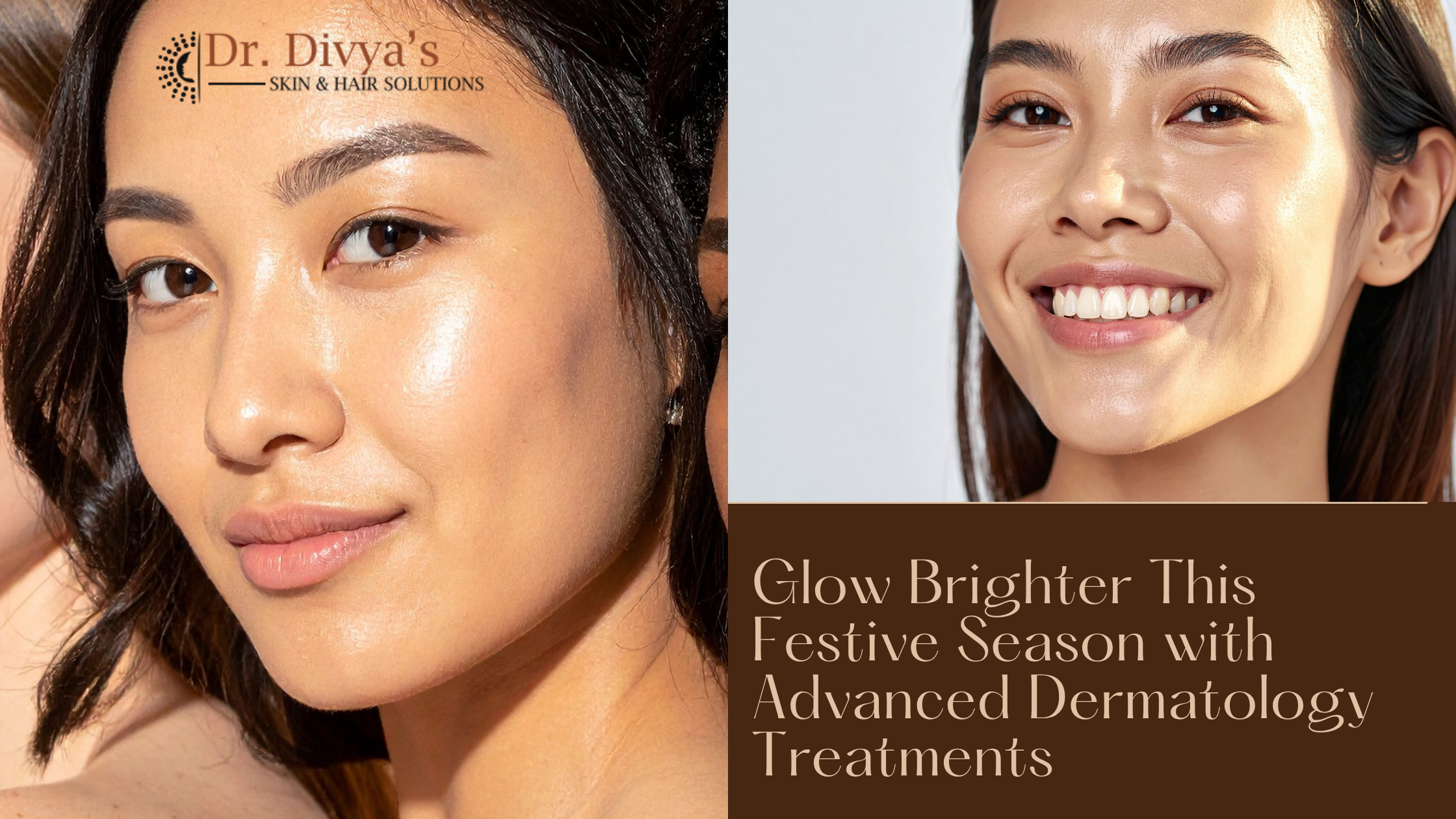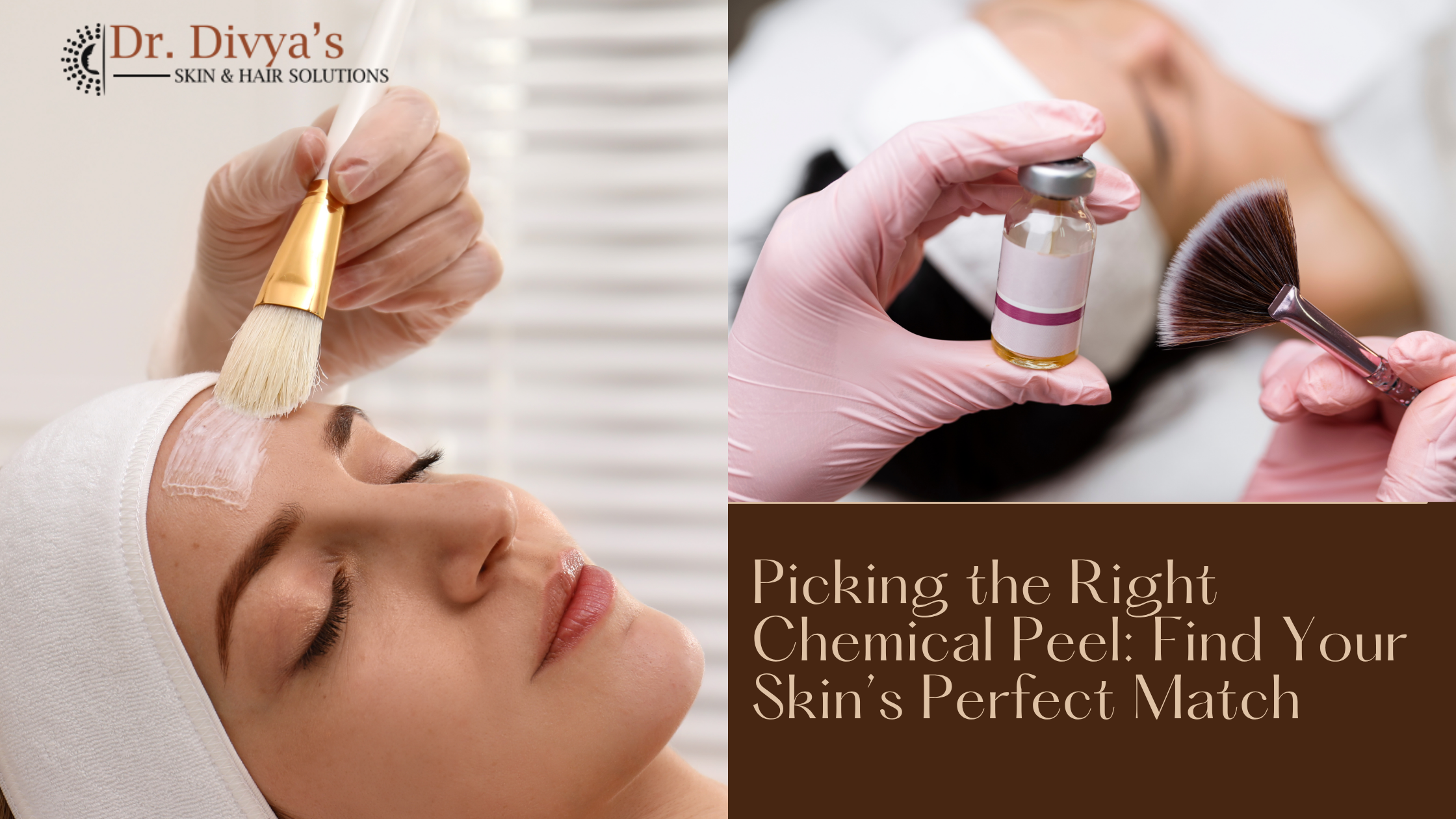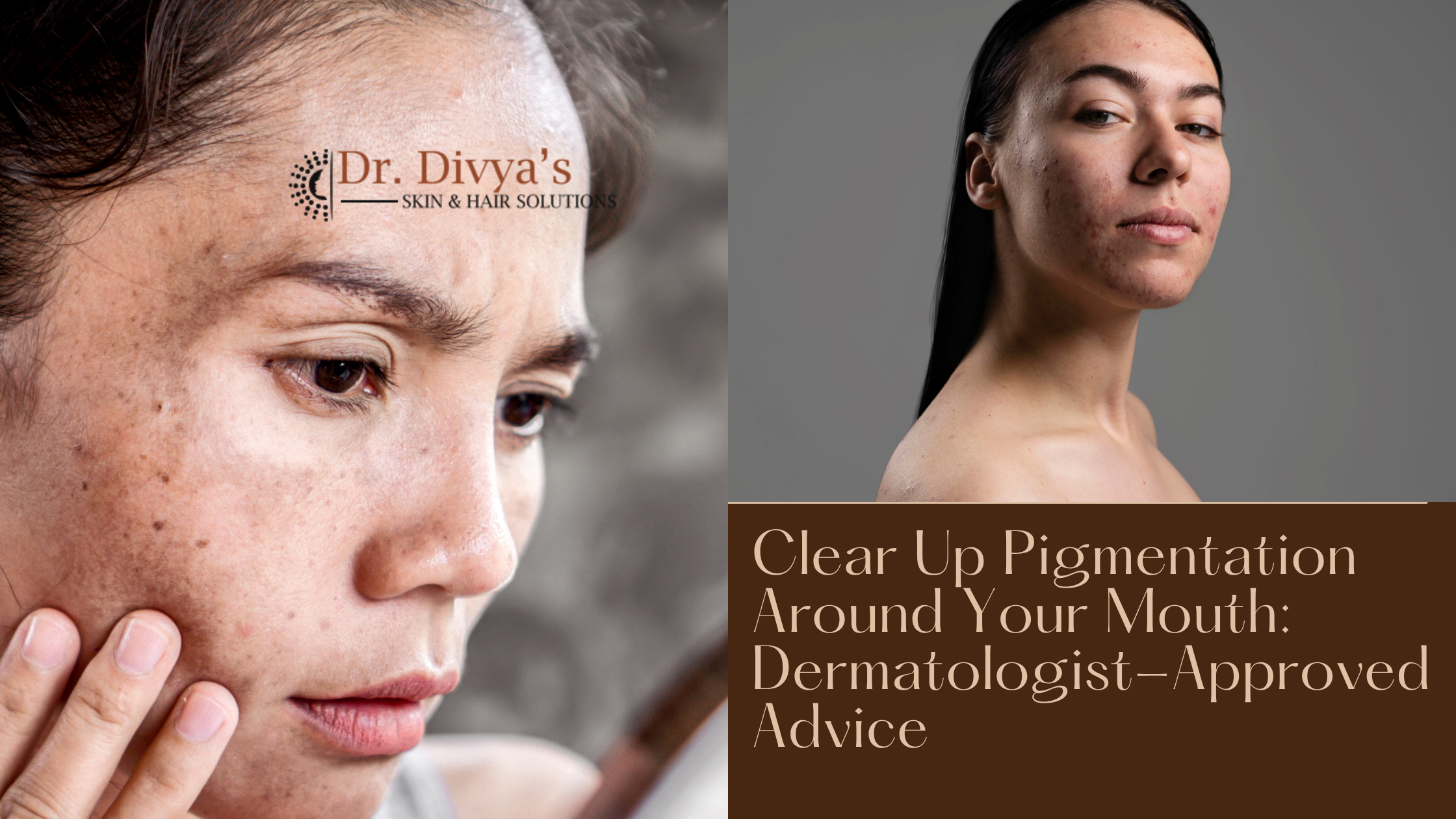Posted date on Aug 05, 2025
Ever looked in the mirror and wondered when those fine lines or dull patches appeared? You’re not imagining it—our skin starts to age as early as our 20s. While aging is a part of life, several internal and external factors can speed up the process, making skin lose its firmness, elasticity, and youthful glow.
The good news? You can take charge of how your skin ages. In this blog, we’ll explore the real reasons behind skin aging—from sun exposure to lifestyle choices—and how to build a smart, dermatologist-approved anti-aging routine that works with your skin, not against it.
What Really Causes Skin Aging?
1. Sun Exposure (Photoaging)
UV rays are one of the biggest culprits behind premature aging. Over time, they break down collagen and elastin—the building blocks of youthful skin—leading to wrinkles, pigmentation, and sagging.
2. Loss of Collagen and Elastin
As we age, our body naturally produces less collagen and elastin, which causes skin to lose its firmness and bounce.
3. Free Radical Damage
Pollution, smoking, and even a poor diet can increase free radicals in your body. These unstable molecules damage skin cells and accelerate aging.
4. Dryness and Dehydration
Aging skin produces less oil, leading to dryness and dullness. Dehydrated skin can also exaggerate the look of fine lines.
5. Lack of Sleep and Chronic Stress
Poor sleep and high stress levels disrupt your skin's ability to repair itself, resulting in under-eye bags, dull tone, and fatigue lines.
6. Unhealthy Lifestyle Habits
Smoking, excessive alcohol, poor diet, and lack of exercise can all contribute to faster skin aging.
How to Treat Skin Aging Effectively: A Dermatologist-Approved Routine
1. Cleanse Gently, But Thoroughly
Use a mild, hydrating cleanser that doesn't strip your skin of natural oils. Avoid harsh scrubs or soaps.
2. Daily Sunscreen is Non-Negotiable
SPF 30 or higher—every single day, even indoors. Sunscreen is the most effective anti-aging product.
3. Moisturize with Antioxidants
Choose a moisturizer with hyaluronic acid, ceramides, and antioxidants like vitamin C or niacinamide to protect and nourish aging skin.
4. Introduce Retinoids or Retinol
Retinol helps speed up skin cell turnover, fades fine lines, and boosts collagen production. Start slow and use it at night.
5. Focus on Nutrition and Hydration
Eat a diet rich in antioxidants, vitamins, and omega-3 fatty acids. Drink plenty of water to keep your skin hydrated from within.
6. Sleep, De-Stress, and Recharge
Aim for 7–8 hours of quality sleep and include stress-reducing activities like meditation, yoga, or simply unwinding before bed.
7. Consider Professional Treatments
For more advanced signs of aging, dermatologists may suggest treatments like chemical peels, microneedling, PRP, or laser therapy.
Conclusion
Aging gracefully doesn't mean letting go of your skin's health. By understanding what accelerates skin aging—from sun exposure to stress—and making smart changes to your daily routine, you can preserve your skin’s youthful glow naturally and effectively.
Remember, consistency is key. A simple yet effective anti-aging routine, built around gentle cleansing, sun protection, hydration, and clinically backed ingredients like retinol and antioxidants, can make a noticeable difference over time.
So whether you're in your 20s or 50s, now is the perfect time to start taking care of your skin—with confidence, care, and a little bit of science.
FAQs
1. At what age should I start using anti-aging products?
Most dermatologists recommend starting an anti-aging routine in your mid to late 20s, when collagen production naturally begins to decline.
2. Can natural remedies help with skin aging?
Yes, ingredients like aloe vera, green tea, turmeric, and vitamin E can support healthy skin when used regularly and safely.
3. Are retinol and retinoids safe for daily use?
They are effective but can be drying initially. Start 2-3 times a week and always pair with a moisturizer and SPF.
4. Do anti-aging creams really work?
When they contain clinically-proven ingredients like retinoids, peptides, and antioxidants, they can reduce fine lines and improve skin texture over time.
5. What’s the best anti-aging treatment for beginners?
A simple routine with a gentle cleanser, SPF, antioxidant serum, and night cream with retinol is a great place to start.
